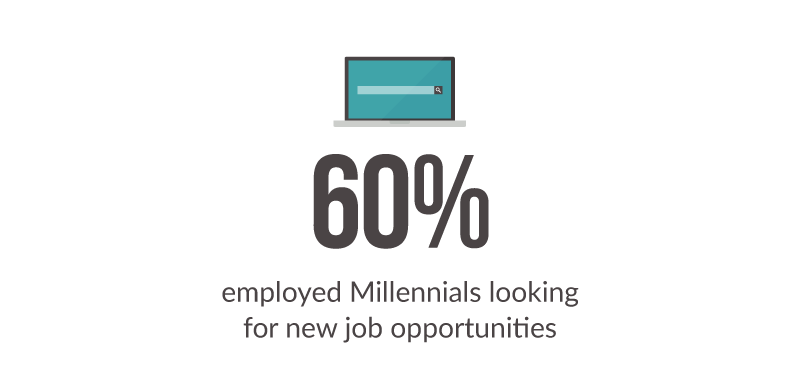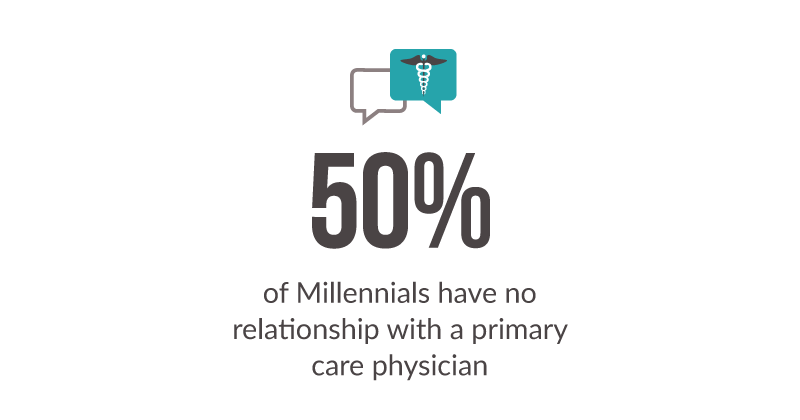EXECUTIVE SUMMARY
The Millennial generation is now the largest generation in the United States, and it’s changing the face of healthcare. Physicians are no longer considered the sole fountains of knowledge, and tech-savvy young adults are taking the lead when it comes to personal health and well-being, researching alternative solutions to the traditional model and using preventive care as a way of life.
The traditional channel mix that pharmaceutical brands have relied upon for years is forever altered. Millennial consumers demand that brands develop strategies that keep them at the center and are designed to engage with them in the channels they already frequent.
Even if this group isn’t your target audience, it’s important to consider their impact on healthcare. This POV addresses Millennial search behaviors, motivational drivers and external influences, and the key factors that are shaping this massive shift, including:
- Their perspective on healthcare
- The declining role of the HCP
- The merging of healthcare and wellness
- The new influencers in living well
MILLENNIALS FACE A HARSH REALITY
Millennials grew up believing that if they worked hard enough, they could be anything they wanted. But those entering the workforce during the 2007 economic recession faced a dimmer future. Working hard no longer guaranteed job security, and they either personally experienced a layoff or watched a good friend go through one. As a result, Millennials became flexible, taking jobs that paid the bills and strategically planning their jump to a company with greater growth potential, stronger benefits, increased pay or a better culture fit.

PLAYING HEALTHCARE ROULETTE
This new leapfrog environment makes for extreme turbulence in preventive healthcare, as Millennials navigate a continuous cycle of waiting for new benefits to kick in. It’s no surprise that 93% of Millennials don’t worry about scheduling preventive physician trips and instead only visit a doctor when sick. Many even stock up on needed prescriptions before making the leap to a new job and cross their fingers that nothing bad happens during the transition.
THE DIMINISHING ROLE OF THE HCP
Due to reactive treatment patterns and changing insurance coverage, the trusted doctor-patient relationship that previous generations have relied upon is declining. by Medscape Education reveals that younger generations are increasingly less likely to take their doctor’s word as the final one.
In fact, nearly half of Millennials have no personal relationship with a primary care physician at all. The longest healthcare relationship they’ve likely had was with their pediatrician, and they haven’t yet developed one with an adult primary care provider, eschewing traditional doctors in favor of convenience and speed.
If Google doesn’t provide answers, or if they know they just need antibiotics or a vaccine, they’ll still avoid the traditional healthcare system options. With new on-demand options, nearly 60% now prefer to visit a retail or acute-care clinic, where they can easily check wait times online and get in and out without the hassle of booking an appointment or an excessive wait due to over-booked doctor schedules. Moreover, 60% of Millennials prefer telehealth options. As digital health options continue to expand, there’s a good chance we’ll see another shift in the near future, as Millennials — and the upcoming Centennial generation — avoid traditional healthcare offices altogether and turn to real-time virtual treatment.

THE MERGING OF HEALTHCARE AND WELLNESS
In a recent study, Millennials ranked the most important components of well-being as “eating right” and “exercising regularly.” Lesser importance was placed on “not getting sick” and “regular healthcare appointments,” indicating a seismic shift in how they approach staying healthy.
Millennials see the lifestyle choices their parents and grandparents made when they were young as the reason behind their frequent doctor visits later in life. In response, they’re adopting wellness routines as a preventive treatment that they can independently control, embracing a lifestyle in which they stay informed of the latest nutrition information, avoid cigarettes, find ways to move more and take measures to stay accountable. They use health and fitness apps and Bluetooth devices to track progress at a rate higher than any generation. Furthermore, one in three share health and fitness information weekly with friends and family, as well as online health communities — asking questions and sharing the progress they’ve made.
A PICTURE IS WORTH A THOUSAND WORDS
Millennials have made the connection between treating their bodies right and seeing that reflected back at them in the mirror. They know if they eat right, drink water and get enough sleep, then they look better when they wake up each morning. A survey last year concluded that the average Millennial may take as many as 25,700 selfies in his or her lifetime. If a healthy, longer life isn’t enough to turn them to wellness, then vanity is.
NEW CHANNELS OF INFLUENCE
Nearly 90% of Americans search for health resources online, and they’re looking not only for diagnostic information, but tips on overall health, nutrition and exercise. The digital healthcare space is evolving into a complex web of health-related information, professional advice and #fitspiration that is constantly updated on professional medical sites and social media.
Today, the Internet is not just a place to access information, but a way to connect virtually with trusted professionals. Millennials have high expectations when it comes to professional services and making the best choices for themselves. They want to control the conversation and are looking for better access through technology. They also demand a custom experience that allows them personalization and engagement options, including the ability to have one-on-one conversations where they can ask questions and get honest answers.

A search for “social media health influencers” brings up over 3 million results, including millions of “top 10” lists full of nutrition experts, fitness professionals, doctors and wellness coaches. These people are shaping the digital health space and reaching constantly connected Millennials in the channels they frequent. If Millennials visit a page and see high follower counts and peer interactions, the source becomes instantly trusted.
These influencers have massive reach, and they have faces that Millennials can relate to. One of these mega-influencers is 24-year-old Kayla Itsines, whose BBG Community is 10.5+ million strong. Kayla travels the world promoting female health empowerment, meeting fan groups, and leading group workout sessions in parks and stadiums.


The digital world gives the health-minded consumer the ability to reach out and talk to people like Kayla, as well as board-certified medical professionals like Dr. Mike, the “Hot Doctor of Instagram,” or Toby Amidor, nutrition expert and author of #GreekYogurt Kitchen.
To connect with Millennials, it’s important for healthcare brands to act like the brands consumers already love, engaging them through the channels they frequent, mimicking the influencers that they’re looking to, and reaching them with value that goes beyond the product or pill.
RECOMMENDATIONS FOR PHARMA
Millennial consumers want to be in the driver’s seat when it comes to their healthcare, and brands that can engage them across channels, educate them, and support them by helping fit traditional care into their schedules and lifestyles will win their business both in and out of the doctor’s office. Here’s how:
- Make it easy: Develop tools and support mechanisms that help them navigate care when schedules are busy and life is unpredictable.
- Make it personal: Look outside of the traditional sales model to reach Millennials organically in the channels they frequent, and then customize your communications to fit their needs.
- Make it immediate: Develop messaging to emphasize the immediate, short-term benefits of care, as well as the long-term effects.
- Make it holistic: Balance the appeal of proactive wellness routines with traditional care to elevate the standard of health for today’s patient.
- Make it relatable: Use influencers to reach Millennials in authentic ways that pair a trusted face with the brand.
A DIGITAL SOLUTION
At Intouch, we regularly put consumers at the center of everything we do. Our tech resources allow us to maintain their privacy while also making it possible to follow their online habits; see the questions they don’t want to ask out loud; the trending information that captures their attention; and every interaction they have with a brand. We focus on constant optimization, looking at how users interacts with data, intercepting them when they veer off the path to trial, and redirecting them through focused content and direct communications. By truly understanding Millennial consumers, we have the opportunity to customize their experience, giving them the personalization they crave and building brand loyalty through trust and understanding.

